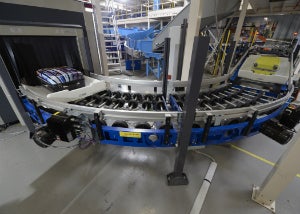
BEUMER Group, with Crisplant, has published a white paper which assesses the impact of the European Civil Aviation Conference’s ECAC3 hold baggage screening regulations on European airports.
Written for Airport Operations Executives and Airport Design Consultants, the paper presents an objective analysis of the implications of upgrading existing ECAC2-compliant baggage handling and screening systems to the ECAC3 standard.
"ECAC3 provides airports with the opportunity to make improvements in the performance and efficiency of their baggage screening process," explains Klaus Schäfer, managing director, Crisplant.
"Using experience gained over 35 years, Crisplant helps airport operators to make informed decisions and achieve the full benefits of the upgrade to ECAC3. In addition to enhanced baggage handling, these benefits include ensuring the optimum use of assets such as Explosive Detection Systems (EDS) to optimise the baggage handling process."
The paper covers topics which include:
- System design, capacity, redundancy and layout
- A comparison of the ECAC2 and ECAC3 technologies
- Compliance and operation
- CAPEX and OPEX costs
The European Civil Aviation Conference’s (ECAC) Standard 3 threat detection test is the highest standard set by ECAC for the detection of explosive threats in passenger hold baggage.
The ECAC3 protocol supersedes the ECAC2 hold baggage screening standard for all new baggage handling systems installed after September 2014. Existing ECAC2 systems must be upgraded to comply with ECAC3 before September 2020.

